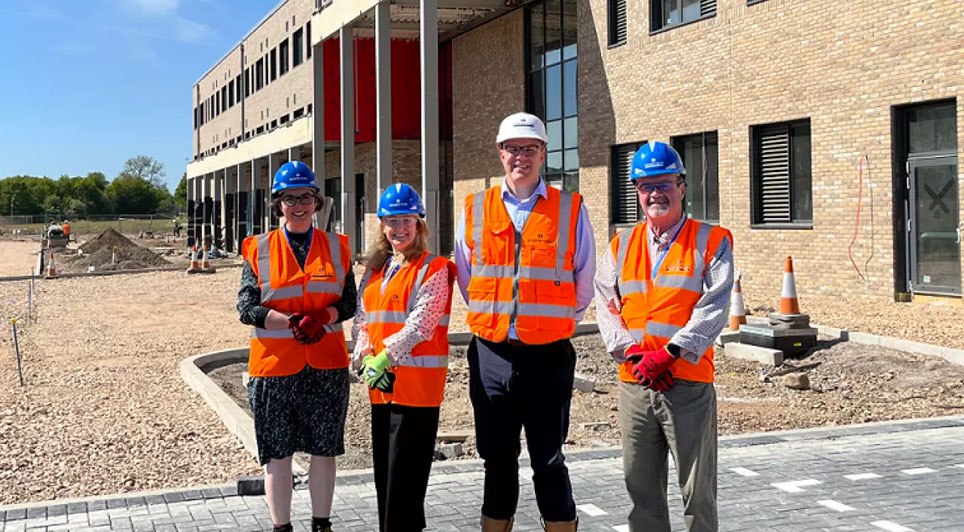The Federation of Master Builders (FMB) has officially launched its comprehensive model for licensing building companies in the House of Lords, marking a significant milestone in its decade-long campaign for mandatory builder licensing.
Developed through extensive cross-industry collaboration, the "Licence to Build" campaign model proposes a clear and robust framework for regulating domestic builders.
The FMB's initiative responds to overwhelming public and industry support. Recent research commissioned by the FMB and Home Owners Alliance reveals that almost half of homeowners mistakenly believe builders are already licensed. Furthermore, 81% of the public back proposals for a mandatory licensing scheme for residential builders.
Why Licensing Matters The FMB argues that mandatory licensing is crucial not only for consumer protection against "rogue traders" but also for achieving the Government's ambitious target of delivering 1.5 million new homes over the next five years. Industry leaders have warned that the government is at risk of falling short of these targets, necessitating urgent interventions to boost supply and ensure quality.
By ensuring that only competent and qualified builders operate, the FMB believes homes will be safer, higher-quality, and built to last, instilling confidence in homeowners and supporting housing delivery. The system is also expected to level the playing field for reputable builders, raise industry standards, and foster economic growth.
The importance of such a scheme was further underscored by the Grenfell Tower Inquiry Phase 2 report, which recommended a licensing scheme for principal contractors involved in higher-risk buildings, making personal undertakings from senior managers a legal requirement for building control approval.
How the System Would Work The proposed licensing model mandates licensing for all paid-for domestic construction work by contractors. It would be funded by industry fees, tiered by firm size and risk to ensure proportionality. The system includes initial and renewal checks, with further checks based on risk factors or significant management changes after the first and third years. Non-compliance could lead to appeals, sanctions, or licence loss.
Key components of the framework include:
• Single UK Licensing Authority: A central body serving as the main point of contact, providing guidance and signposting for firms seeking licenses.
• Approved Scheme Providers: Firms would apply for a licence via these providers, responsible for assessing applicants against national standards. The central body's website would help firms identify suitable providers.
• Provisional Licences: Upon application, firms may receive a provisional licence, during which sporadic field checks would assess competence and quality before a full licence is granted.
Firms would need to meet and maintain standards across four key areas: Health and safety, Competence (technical skills, management, regulatory understanding), Quality management, and Dispute resolution and customer service. Additionally, firms must sign a Considerate Contractor Declaration, committing to best practices in worker wellbeing, community relations, and environmental impact.
Cost Implications Based on 2018 data, the FMB's "Licence to Build" report estimated that if each of approximately 1 million UK construction firms paid £150 for a licence, it would generate £150 million. Adjusting for current (2024) business population estimates of 870,185 construction firms and 28% inflation since 2018, each firm would need to pay approximately £172 to generate a comparable income, ensuring a self-sustaining, industry-funded model.
FMB CEO Brian Berry asserted: "You wouldn’t trust a driver without a licence-so why trust a builder? For over a decade, the FMB has campaigned for a mandatory licensing system of building companies because we have seen first-hand the devastating impact rogue builders can have on innocent homeowners. Our licensing model is the missing link to drive up standards, protect homeowners, and ensure that only competent, qualified building firms are allowed to build and improve our homes. This is about restoring trust and professionalism to our industry, supporting reputable builders, and finally giving consumers the confidence and protection they deserve. We sincerely hope that the Government will put protecting the consumer at the top of its agenda. Now is the time for action to deliver the change the public and industry need."
Conservative MP Mark Garnier, who has championed a licensing system through his Private Members’ Bill, the Domestic Building Works (Consumer Protection) Bill, expressed renewed hope for its passage under the new Government. His Bill, first introduced in 2021, is scheduled for its second reading on June 13, 2025.
Mary Lukins, a victim of an un-convicted rogue builder, shared her traumatic experience, underscoring the urgent need for regulation: "The FMB’s campaign for licensing is the last hope for many victims of cowboy builders like me. Entrusting my life savings to a builder for a much-needed extension after my MS diagnosis turned into a horrific ordeal... I am left with a damaged house, a drained pension, and the agonising realisation that an industry body’s vetting process failed me. Regulation is desperately needed to protect vulnerable homeowners from such predatory practices, and to ensure basic sanitation on building sites."
Next Steps To establish an effective construction licensing system, the FMB advocates for collaboration between the UK Government and industry competence bodies to develop a workable scheme. This includes establishing a single UK licensing body, agreeing on geographical licence operation across the Home Nations, identifying scheme providers, and setting operational requirements such as technical standards and compliance inspections. A comprehensive cost-revenue assessment is essential for a self-sustaining model, followed by appropriate legislation and staged implementation starting with pilot programs.
Construction News
23/05/2025
FMB Launches Builder Licensing Model In House Of Lords


23/05/2025
Angus Council Leader, Councillor George Meechan, along with senior officers, recently visited the new Monifieth Learning Campus site to observe the "impressive progress" on the £66.5 million project. The campus is being delivered by Robertson Construction Tayside and is nearing completion.
Located

23/05/2025
Zero-emission aviation leader ZeroAvia has announced plans to build a major manufacturing facility for its hydrogen-electric powertrains at the Advanced Manufacturing Innovation District Scotland (AMIDS), near Glasgow Airport.
The project will also establish a Hydrogen Centre of Excellence, markin

23/05/2025
Muir Timber Systems has secured a new contract with Kirkintilloch-based construction specialists, SIM Building Group, to support the delivery of 22 new affordable homes at Whitehill Court in East Dunbartonshire.
The development will offer a mix of terraced homes and flats, helping to meet local hou

23/05/2025
Work has been completed on "The Auction Rooms", a design-led office development located at 22 Queen Street in the heart of Edinburgh's New Town.
The project has successfully transformed the former Bonhams Auction House into one of the city's most sought-after commercial spaces, which is already at

23/05/2025
The Federation of Master Builders (FMB) has officially launched its comprehensive model for licensing building companies in the House of Lords, marking a significant milestone in its decade-long campaign for mandatory builder licensing.
Developed through extensive cross-industry collaboration, the

23/05/2025
Perth and Kinross Council has officially launched a bold, £530 million Investment Prospectus at the UK Real Estate Investment & Infrastructure Forum (UKREiiF) 2025 in Leeds. The prospectus presents a compelling vision for sustainable, long-term growth across the region, targeting a high-profile audi

23/05/2025
Leading electricity infrastructure company, SSE, has announced its full-year 2024/25 financial and operational results, revealing a record investment of £2.9 billion in energy infrastructure over the past year.
This investment equates to approximately £8 million invested daily, supporting the UK g

23/05/2025
Scottish Land & Estates (SLE), the rural business organisation, has called on the Scottish Government to urgently outline its funding and support schemes for rural businesses, asserting that clear strategies are vital for Scotland to achieve a 94% cut in greenhouse gas emissions by 2045. This plea f

23/05/2025
Dundee's senior councillors have welcomed significant funding from the Scottish Government that will support two major projects in the city: the redevelopment of the Dundee Museum of Transport and ongoing improvements in the Lochee area.
The Dundee Museum of Transport at the former Maryfield tram d

23/05/2025
Scotland's climate advisors, the Climate Change Committee (CCC), today published their advice on the country's four carbon budgets spanning from 2026 to 2045. This marks the first time the Scottish Government has sought such a comprehensive set of recommendations from the independent body, mirroring
 Scotland
Scotland UK
UK Ireland
Ireland London
London











